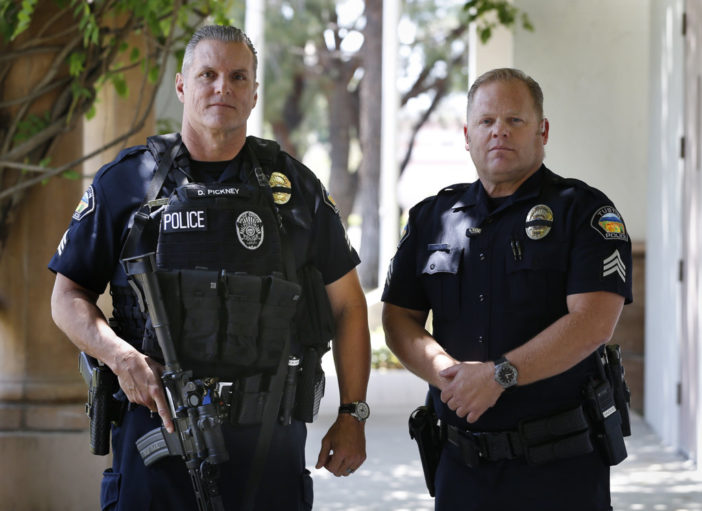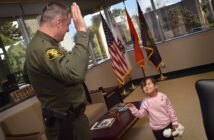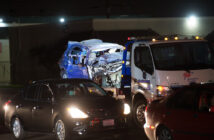Nearly a year has passed since law enforcement’s darkest month in recent memory.
On July 7, 2016, five Dallas police officers were gunned down in an ambush-style attack by a man armed with an assault rifle whose mission was to kill police officers.
Ten days later, three police officers in Baton Rouge, La. were shot and killed.
In the Dallas shootings, all the officers were wearing bulletproof vests, but they weren’t strong enough to stop rounds from a rifle.
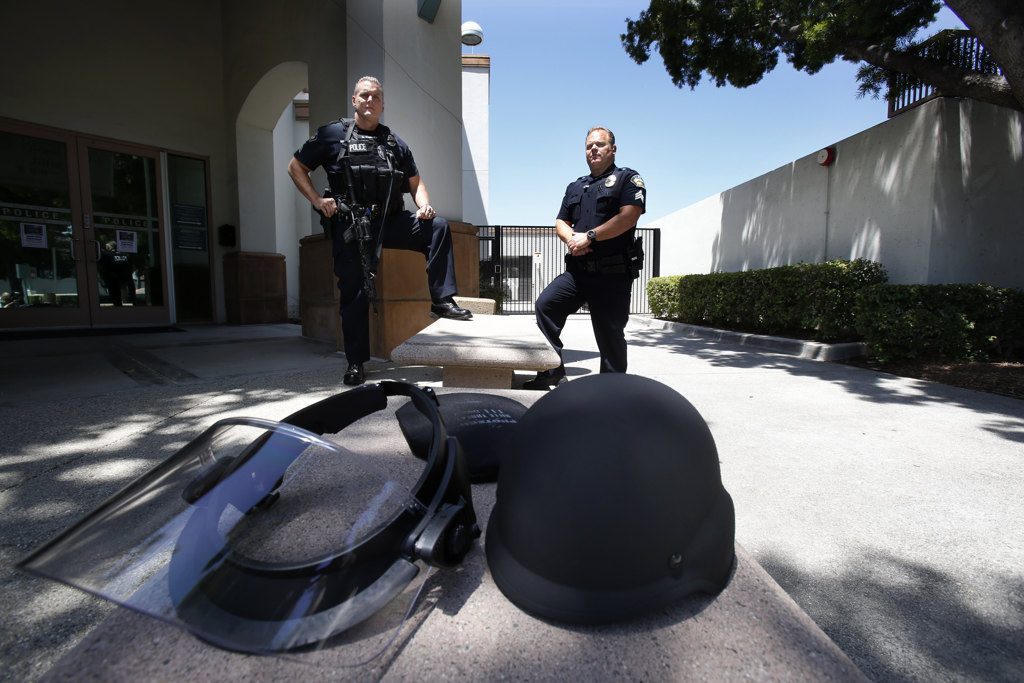
Sgt. Del Pickney, left, and Sgt. Duane Havourd with the new face shields and helmets that were recently acquired to protect members of the Tustin Police Department.
Photo by Christine Cotter
In response, the Texas legislature last month approved a $25-million grant to purchase rifle-resistant vests for nearly 50,000 peace officers statewide.
“Four of our officers would be alive today if they had this on,” Frederick Frazier, first vice president of the Dallas Police Association, told the Dallas Morning News. “We need this equipment to keep us alive.”
The Tustin Police Department agrees.
The agency recently purchased 100 ballistic vests and plates rated to stop rifle rounds, tactical helmets, faceplates and other related gear – enough to equip every sworn officer.
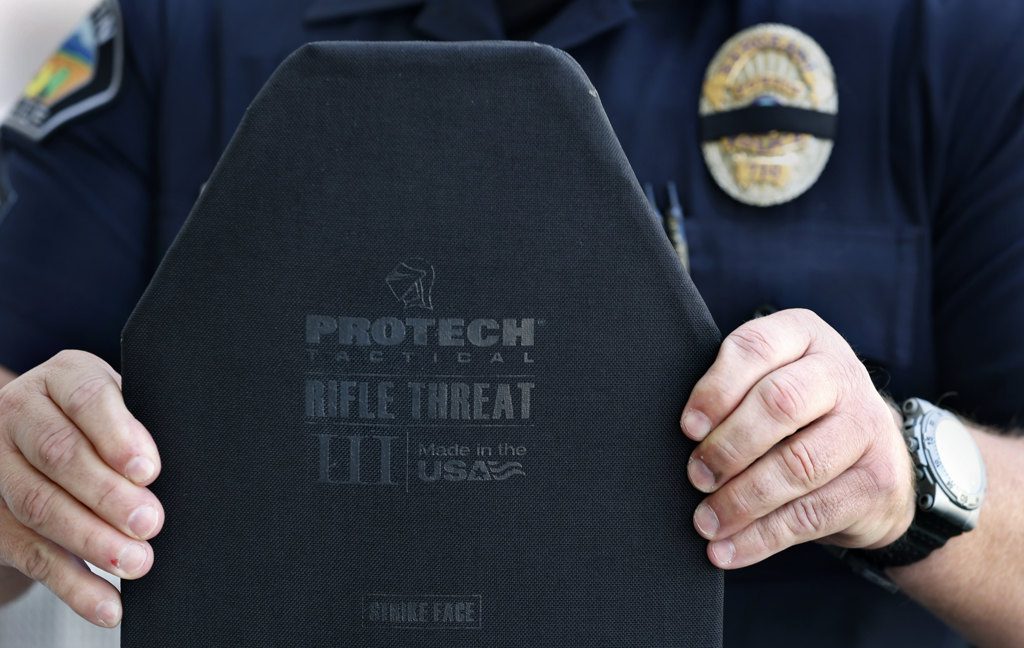
A highly protective strike plate fits in the new vests acquired by the Tustin Police Department.
Photo by Christine Cotter
The purchase proposal was written by Sgt. Duane Havourd and approved by the City Council in December 2016.
Havourd, a 28-year veteran of the department, firearms expert, trainer and former SWAT member, pushed for the upgraded gear, not only in the wake of increased violence perpetrated against the police, but also because of an uptick in active-shooter situations in which the suspects are armed with rifles.
“What is a life worth?” Havourd asked rhetorically. “And the tragedy that is involved with a family losing their loved one?”
To go along with the vests, Havourd purchased utility belts with carriers that hold ammunition, as well as a medical kit.
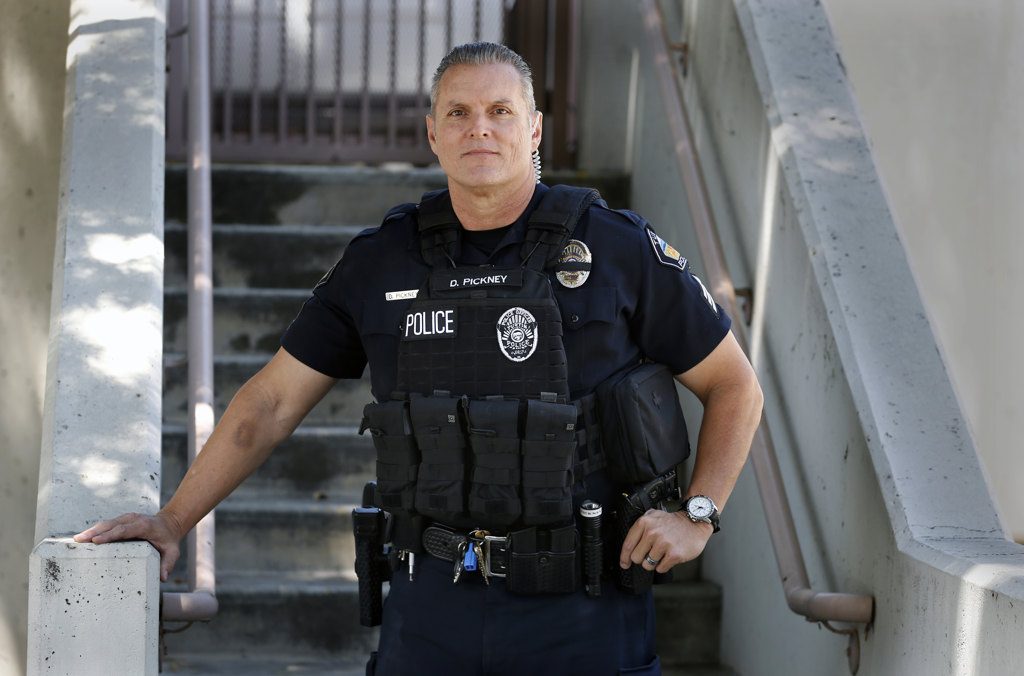
Sgt. Del Pickney wears one of the new bulletproof vests the Tustin Police Department acquired in the wake of increased violence against officers.
Photo by Christine Cotter
Tustin PD’s sworn personnel already are mandated to wear traditional bulletproof vests, called soft body armor, which are capable of stopping bullets from a handgun — but not a rifle.
While officers are not required to wear the rifle-rated vests all the time, they must have them available in their patrol vehicles.
“This, in conjunction with our soft body armor, will stop pretty much anything fired from what is on the streets,” Havourd said.
An officer donning the rifle-rated vest and gear on top of the soft body armor will be carrying about an extra 45 pounds.
So, when shopping for the right rifle-rated vest, comfort was an issue, Havourd said.
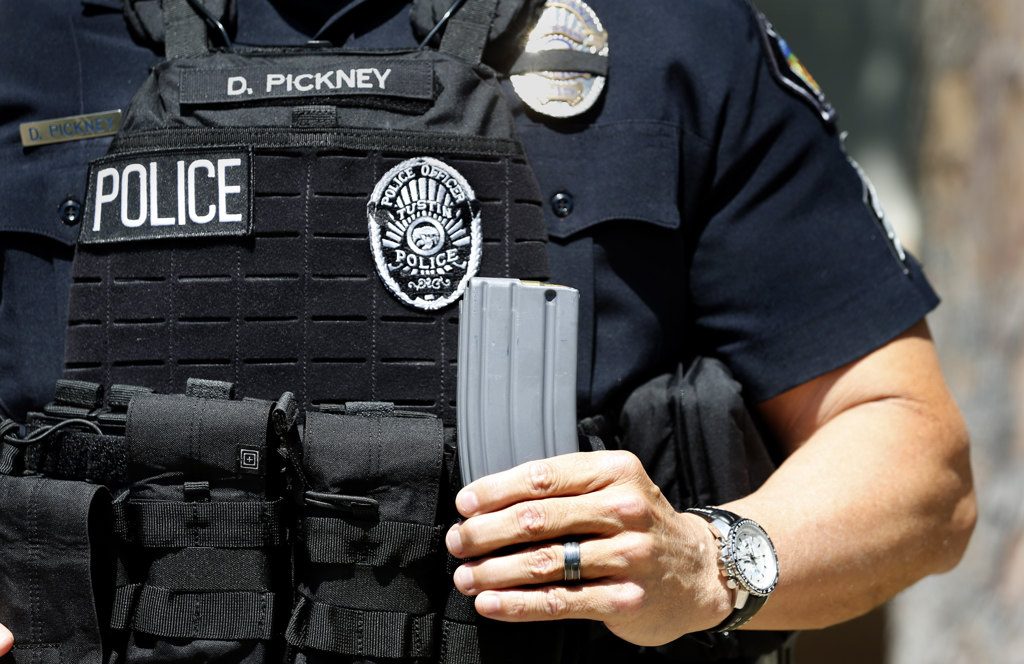
Sgt. Del Pickney holds rifle bullets that fit in the department’s new bulletproof vests.
Photo by Christine Cotter
“In SWAT, we were wearing that stuff for 10 or 12 hours at a time, so comfort and mission sustainability becomes an issue,” Havourd said. “I tried to get the most comfortable and lightest-weight and durable and most effective equipment I could.”
“Duane has done an excellent job putting this system together,” said Sgt. Del Pickney, a longtime field training officer and 29-year veteran of the department.
The new vests are designed to withstand multiple hits in the same area and still not be penetrated.
“You can get a lighter plate than this, but they are not multi-hit rated,” Havourd said. “So, if someone put a round in the same area, it might not stop it, which is unacceptable ….”
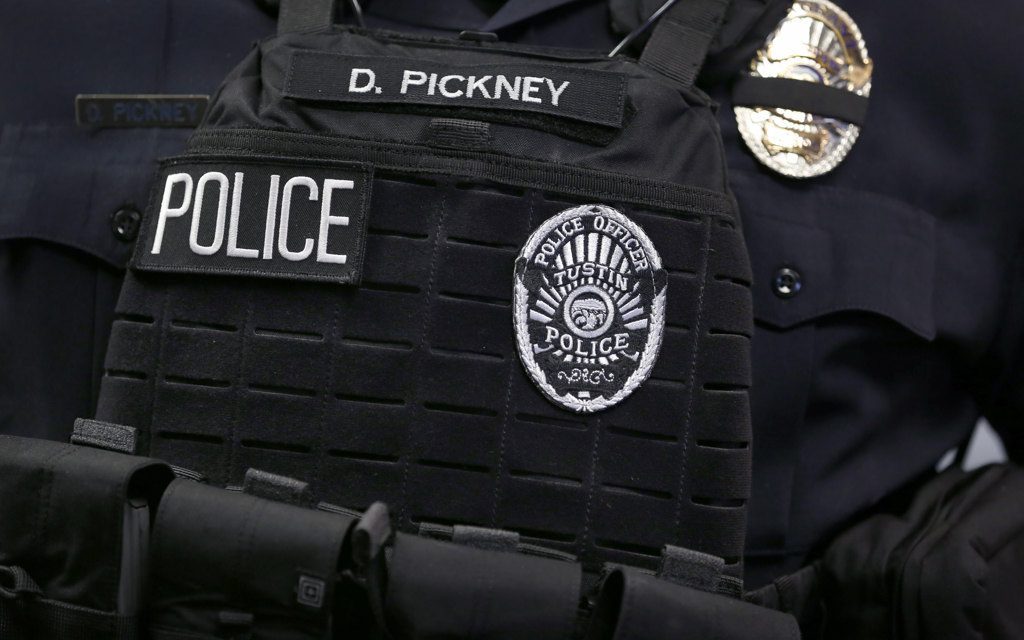
Sgt. Del Pickney wears one of the new bulletproof vests that the Tustin Police Department acquired in the wake of increased violence against officers.
Photo by Christine Cotter
Tustin PD suffered its only line-of-duty death in 1973, when Waldron Karp was shot and killed in an ambush-style attack by a man armed with a rifle.
Havourd wants to take every possible precaution to prevent a second line-of-duty death in the city.
“I tried to get the best money can buy,” Havourd said. “When we are talking about the lives of our officers, why not try and get the best?”
 Behind the Badge
Behind the Badge
